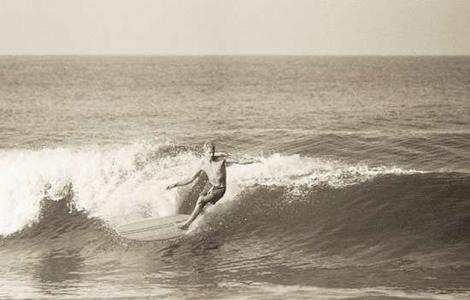Growing up on the coast of Florida and living for a while on the coast of North Carolina, I’ve associated “skimming” with something more like this. (Or I usually call it “skimboarding” because “skimming” in the context of water sounds like something a lost fisherman would do; see the related: “skiff” and somewhat tangentially: “skip”.).
For reading, skimming never really crossed my mind. From a young age it was ingrained in me that “real students” did not skim, that it was just not done and that it was for the poorly informed–like belching at the dinner table. It was gross, despicable, and in no representative of what you do in polite, literary company (I have no idea who taught me this. I don’t usually have such fervent completist streaks).
The books I read then–middle school, high school, college, grad school–I fully read, with little notes on the side so that small nuances of character and plot and menacing symbols could be analyzed for “meaning”.
But even back then, even when pressed against a deadline, it would not occur to me to skim. I would just show up blindly for class having not read The Octopus by Frank Norris (is that good?) and hope that I would not be addressed to give my take on Norris’ use of tentacles (I’m pretty sure there are no actual “tentacles” in Norris’ book; this is just a hunch however–I’m sure someone could explain to me the “meaning” behind the “octopus,” but please don’t. Not right now at least. Somewhat related: It never occurred to me to just skip class; again that completist streak; my academic career is definitely more related to “skimming” and “skipping” than I first thought).
A little later on, I became a working journalist and that didn’t help my skimming cause: my job was to pay attention to the details. To take notes on many small things. To find the extra edge in the details. I’ve been (over)trained to pay attention to words.
But, much like when you hit your first wave while “skimboarding” (or it could be argued, skipping class) skimming books has opened up new tricks for me. My newest trick is called “Freedom.”
Now, reading should actually be called “skimming.” (Or is “general reading” essentially that already? Is actual reading-reading called “close reading”?) With my newfound skimming ability, I can plow through the newest literary fiction in an hour and generally understand it. I can stumble into key passages (or not) and get some of the language and style of the author (or not).
Because if I don’t fully understand the writer’s meaning or the writer’s style why does it matter? I have no more papers to write. And there’s only a few book reviews or the occasional Q&A. For those I’ll pay more attention (promise!). I’ve probably read more of a semi-popular/well-known work than my friends have anyway.
Here’s a recent example: Swamplandia by Karen Russell. (Double appropriate, since I learned how to “skim” in the Sunshine State and that’s where Swamplandia is set. Readers exhibiting a “close read” rather than just “reading” or “skimming” would have more than likely already made this connection).
I started reading this by exhibiting my old nature. I read a chapter or two. In those chapters, I learned that a family is struggling with its poorly run gator-themed amusement park (For those reading closely and desire more information on a similar subject, please see “Weeki Wachee Springs”, though these parks are all over Florida).
No one in my immediate circles had read it, though I had seen a lot of chatter about it online. But once I got a chapter or two in, I almost stopped. I was not caring. Sure, the whole thing was tragic, but there are many fictional tragedies in the world. Though this was a well-executed tragedy.
But then the character Kiwi began working at another local amusement park. I found out that this would eventually happen by reading inside jacket (I think) and then I skimmed my way over to it.
Kiwi was funny. His friends were funny. The new setting (a Hell theme park aptly called “World of Darkness”) was inventive, with plenty of room to laugh at Kiwi’s working foibles. So I just read the Kiwi chapters.
I have no idea what happened in the rest of the book. I got a general sense (a lost girl, a girl with a vivid ghost-imagination or something) and I was good. The rest of the book could have had the same humor as the Kiwi chapters, but I’m okay with not knowing. The story of Kiwi served as a novella of sorts with its alternating chapters, and I just read those.
And it was glorious. Better than if I had read the whole thing.
Not every book is set up this way, so they can’t all be skimmed in t the same way. Sometimes you have to resort to the more typical skimming methods–topic sentences, key words, that E-Formation reading that the Internet is making us do or whatever.
The book did what it is supposed to do, or what I wanted it to do, even though I didn’t read it all. So in 2012 I’m skimming more. And having fun doing it. Just like those guys in the video.
Follow Vol. 1 Brooklyn on Twitter, Facebook, Google + and our Tumblr

